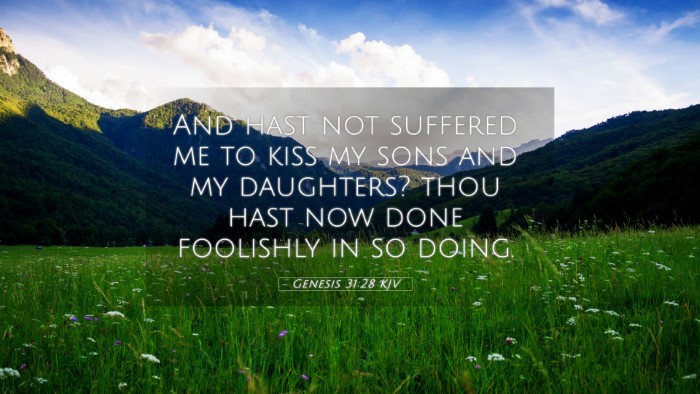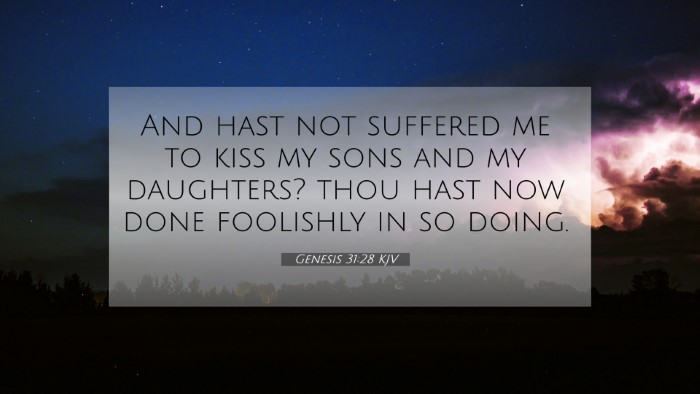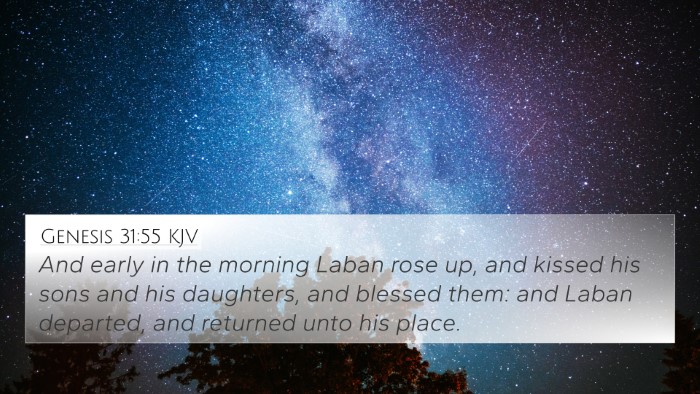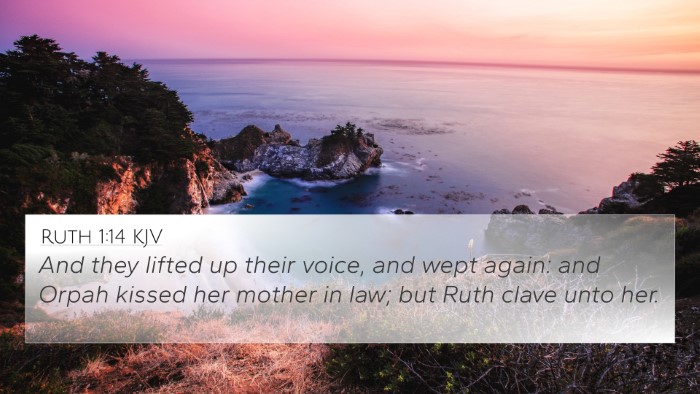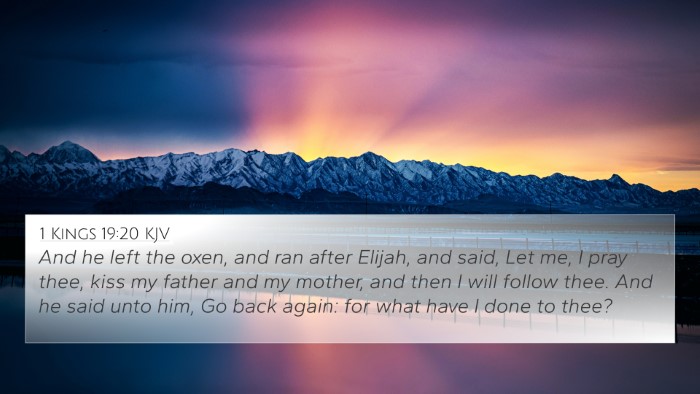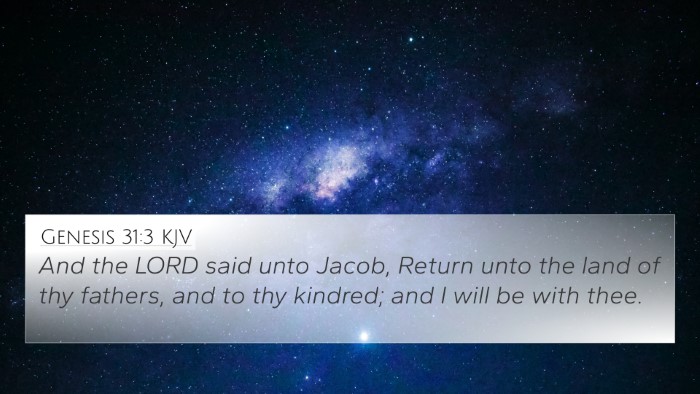Understanding Genesis 31:28
Genesis 31:28 states:
"And hast not suffered me to kiss my sons and my daughters? thou hast now done foolishly in so doing."
Summary of the Verse
In this verse, Jacob expresses his sorrow and frustration towards Laban, his father-in-law. Jacob has been compelled to leave abruptly with his family to return to his homeland. He laments not being given the opportunity to bid farewell to his children and family. The choice of words demonstrates Jacob's deep emotional distress at Laban's actions.
Commentary Insights
This verse has been analyzed extensively in biblical commentaries, providing various insights that enhance our understanding.
-
Matthew Henry's Commentary:
Henry highlights that Jacob’s departure was driven by necessity, and he reproaches Laban for his unreasonable behavior. Jacob's words reflect the importance of familial bonds, suggesting that an emotional farewell is essential even amidst conflicts.
-
Albert Barnes' Notes:
Barnes elaborates on the context surrounding this verse, indicating that Jacob's sorrow emphasizes the abrupt disruption in lives. He interprets Laban's actions as foolish, as it denied a moment for tenderness and familial love, which should precede major life transitions.
-
Adam Clarke's Commentary:
Clarke comments on the cultural significance of farewells in Syrian society. He suggests that Jacob's complaint underscores the harshness of Laban's treatment and the drastic nature of his escape, as well as the emotional turmoil it caused to both families.
Thematic Connections
Genesis 31:28 opens discussions on themes such as conflict in family relationships, the importance of farewells, and the consequences of deceit.
Key Themes:
- Family Bonds: The necessity of maintaining relationships, even during conflicts.
- Deception: The theme of trickery is prevalent in Jacob and Laban’s relationship.
- Emotional Distress: Jacob's lament serves as a poignant reminder of the emotional toll of separation.
Bible Verse Cross-References
Genesis 31:28 connects with several other scriptures that reinforce its themes and messages. Here are some pertinent cross-references:
- Genesis 29:20-30: The account of Jacob working for Laban and the complexities of their relationship.
- Genesis 30:25-26: Jacob’s decision to leave Laban's household after the birth of his children.
- Genesis 31:43-54: Laban and Jacob’s covenant, showing the culmination of their relationship.
- Proverbs 16:7: When a man's ways please the Lord, he makes even his enemies to be at peace with him, reflecting the search for peace in relationships.
- Ephesians 6:4: Leverage familial bonds in nurturing experiences with children is emphasized.
- Matthew 10:36: Jesus speaks of familial conflicts that arise during significant decisions and changes.
- Luke 14:26: Emphasizing the commitment required in following the faith, even over familial ties.
Conclusion
Genesis 31:28 serves as a poignant reminder of the complexities of human relationships and the emotional weight of separation. The commentaries reveal the depth of Jacob's feelings towards Laban and reaffirm the significance of relational connections. Through cross-referencing with biblical texts, one can appreciate the thematic richness embedded in this narrative, which resonates through multiple scriptures and teachings.
Resources for Further Study
To engage in a comprehensive study of the Bible and its verses, consider utilizing:
- Bible concordances for locating specific themes.
- Bible cross-reference guides for better understanding connections.
- Cross-reference systems to deepen study approaches.
- Tools for detailed cross-referencing of biblical texts.
Engaging in Cross-Referencing
By engaging in cross-referencing, readers can discover the intricate web of connections within the Bible, enriching their understanding of scripture and enhancing their spiritual journey.

